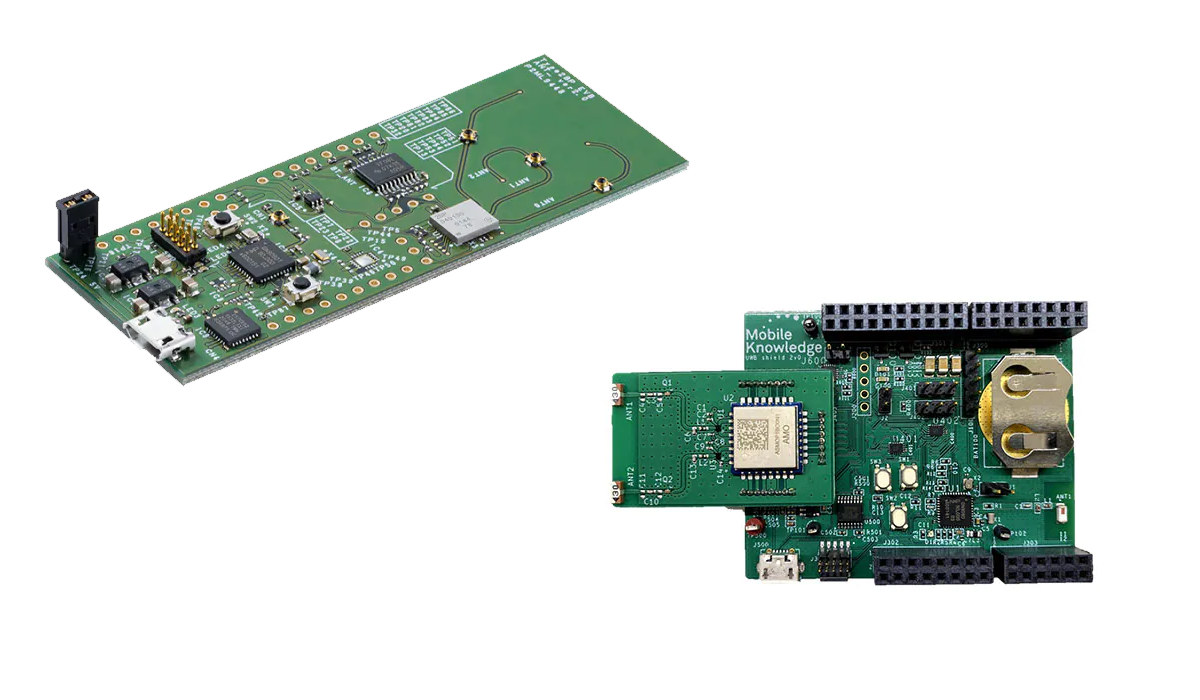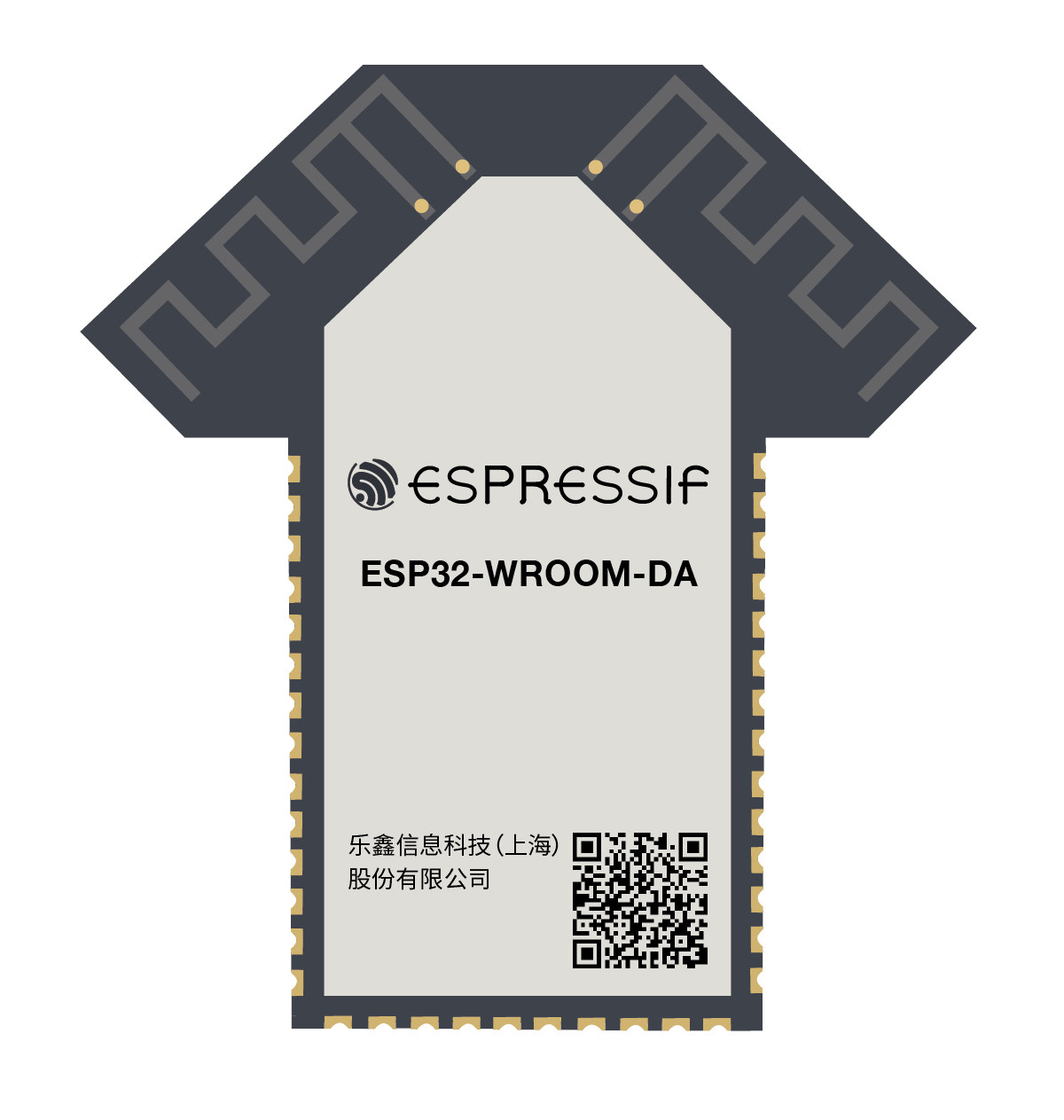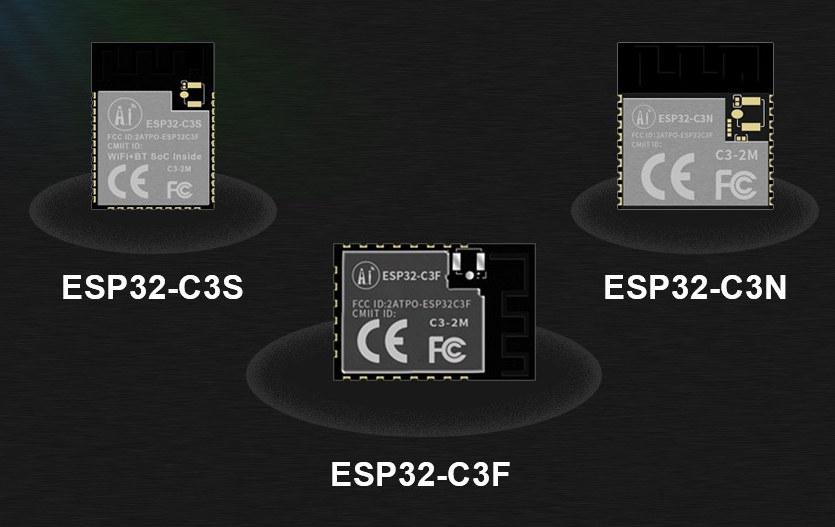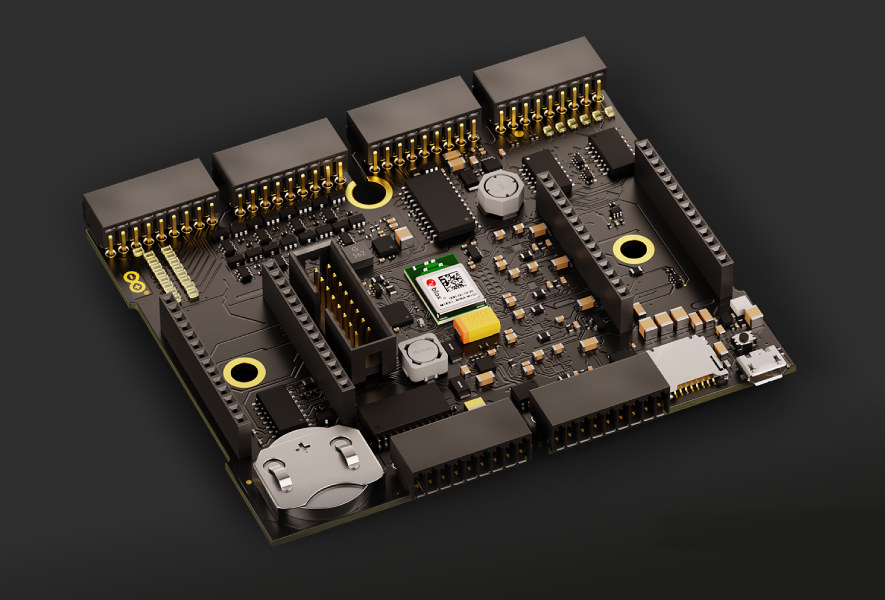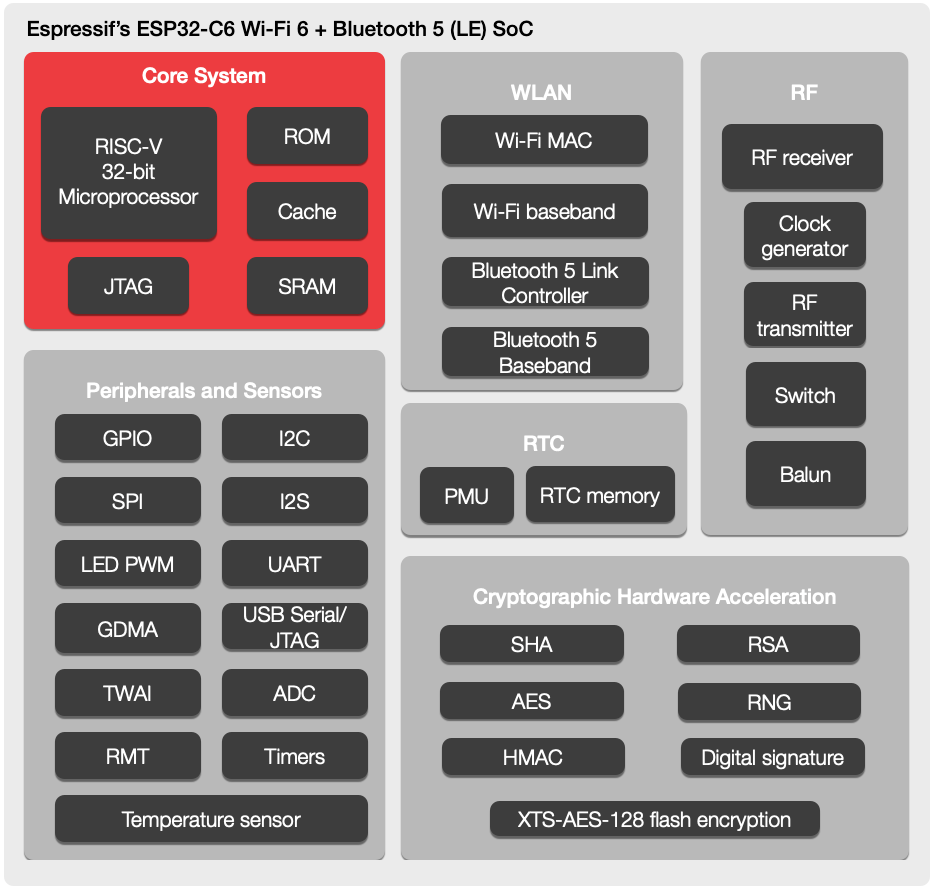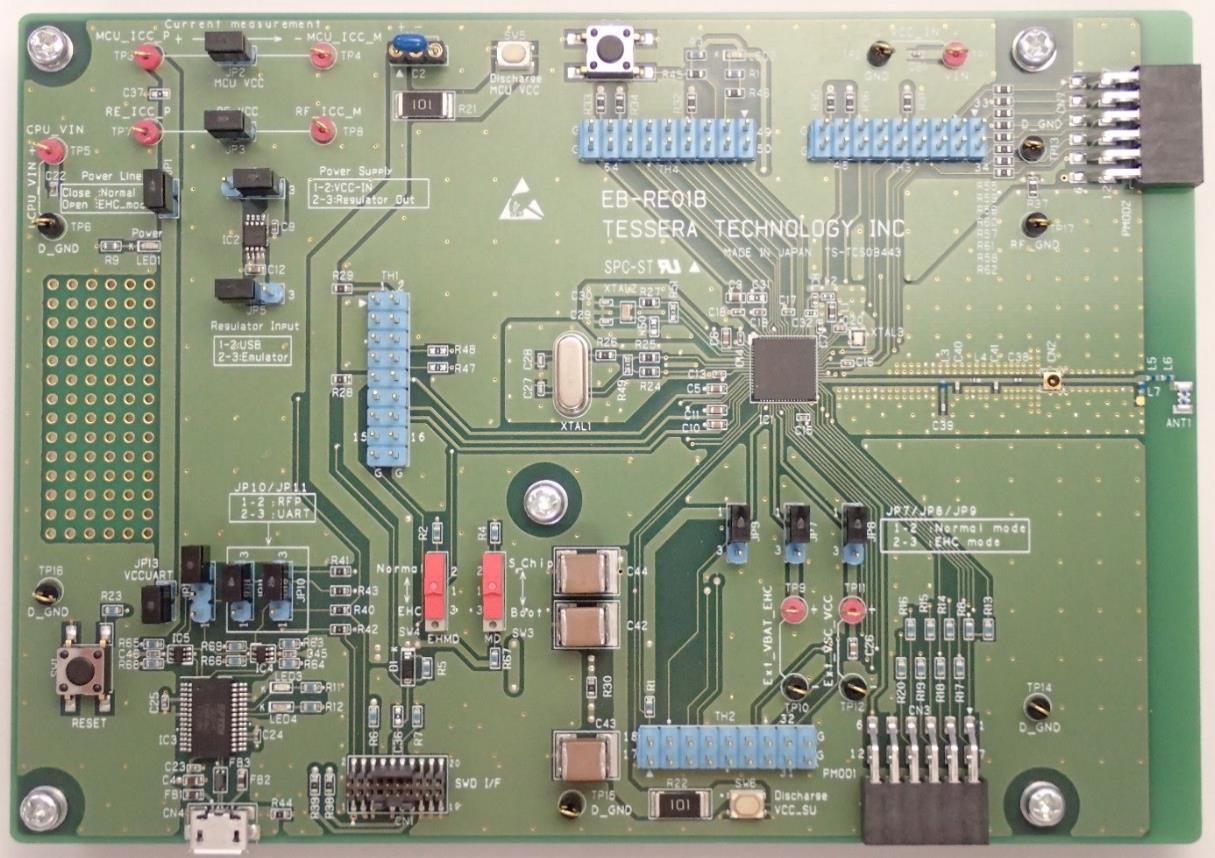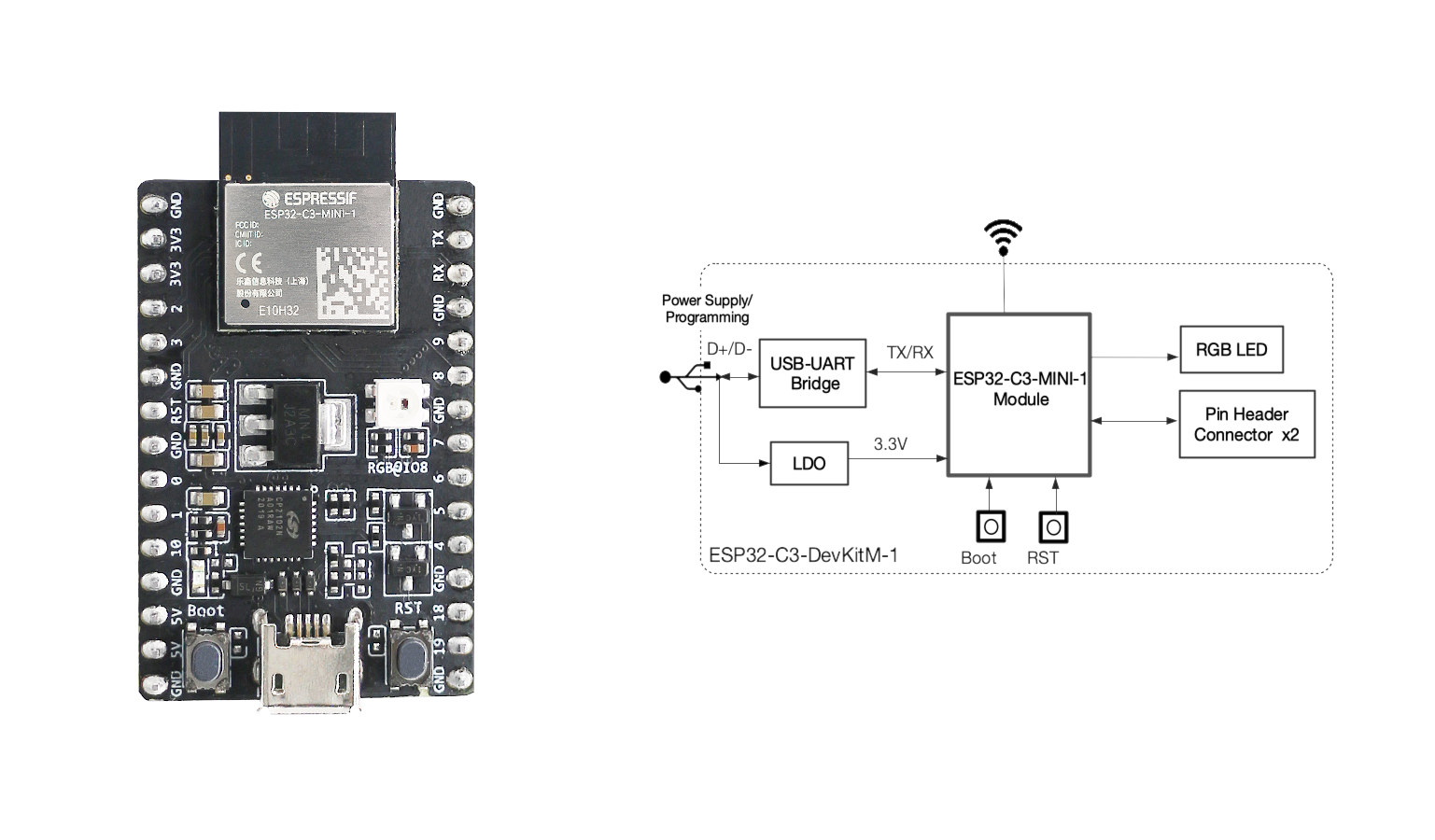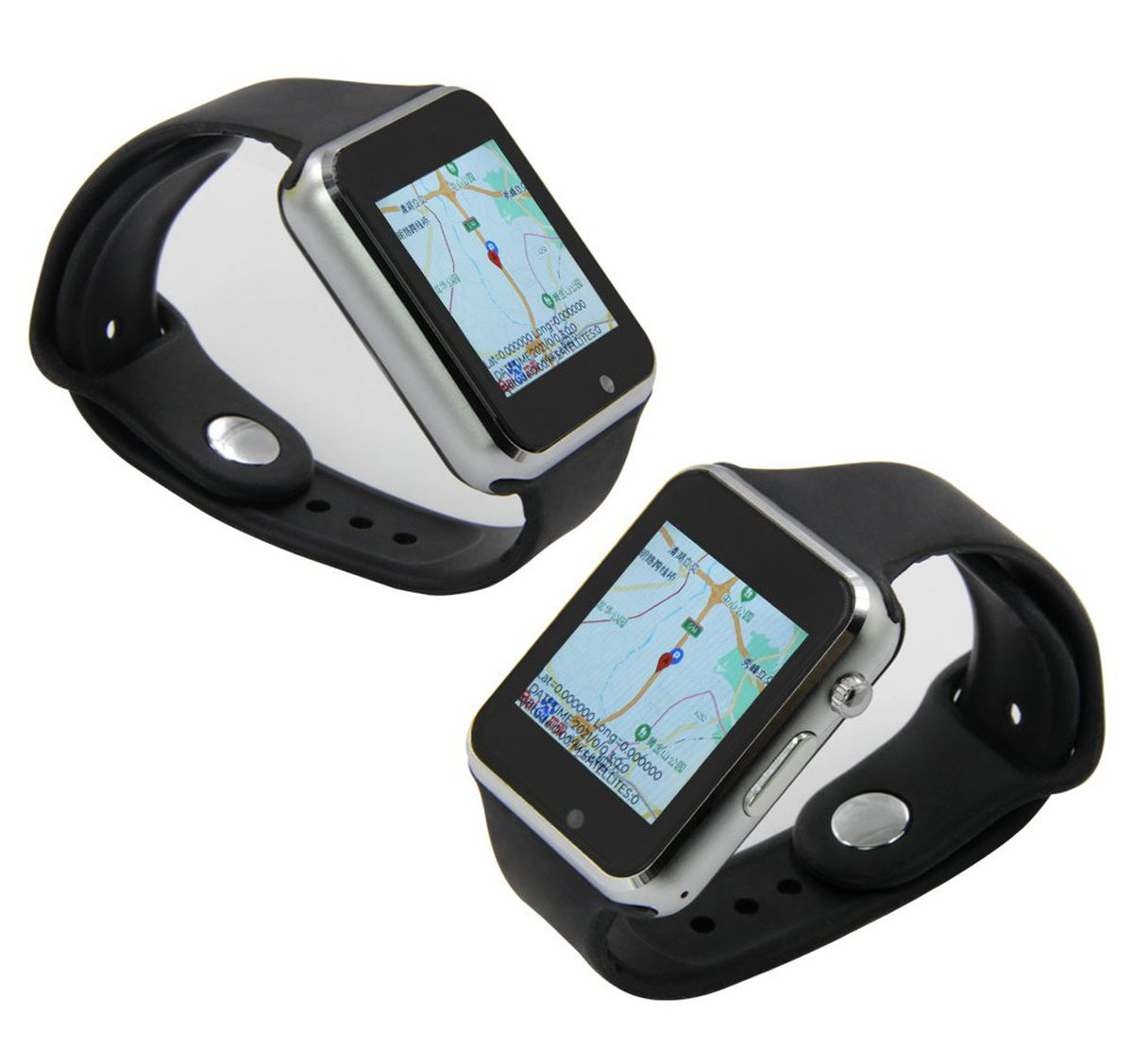The Fira Consortium was established in 2019 to provide an Ultra Wide-Band (UWB) ecosystem for real-time centimeter accuracy indoor positioning with companies such as NXP Semiconductors and Samsung Electronics on board. More companies have joined since then including Apple which designed its own UWB chip – the Apple U1 – found in recent iPhone 11 & 12 smartphones, as well as Apple Watch Series 6 to enable “Nearby Interaction“. If you’d like to develop UWB-enabled IoT applications, NXP has announced two beta UWB evaluation kits – developed with partners – compatible with Apple U1: Murata Type2BP EVK and MobileKnowledge’s UWB Kit Mobile Edition. Murata Type2BP EVK Specifications: Wireless chips/modules Murata’s Type2BP ultra-small UWB module based on NXP Trimension SR150 Arm Cortex-M chip for IoT devices. 802.15.4z compatible and supports 3D AoA (Angle-of-Arrival) for extra precision. NXP QN9090 Arm Cortex-M4 Bluetooth 5.0 LE SoC with 640 KB flash, 152 KB RAM, […]
ESP32-WROOM-DA dual PCB antenna WiFi module aims for longer range, better reliability
Espressif Systems ESP32-WROOM-DA is another ESP32 based WiFI & BLE module with a twist as its dual PCB antenna design aims to provides a longer range and more reliable connectivity by automatically switching to a specific PCB antenna depending on signal strength. The new module features ESP32-D0WD-V3 dual-core Xtensa LX6 dual-core processor with a maximum frequency of 240 MHz, along with 520 KB of SRAM and 448 KB of ROM, and has been designed to be pin-to-pin compatible with ESP32-WROOM-32E module found in products such as Pico Wireless, in order to ease migration between the two modules. Espressif did not provide detailed specifications for the new WiFi module, but assuming it’s mostly based on ESP32-WROOM-32E design, ESP32-WROOM-DA should have the following key features & specifications: WiSoC – Espressif Systems ESP32-D0WD-V3 embedded, Xtensa dual-core 32-bit LX6 microprocessor, up to 240 MHz with 448 KB ROM for booting and core functions, 520 […]
AI-Thinker introduces 5 ESP32-C3 modules pin compatible with ESP8266 & ESP32 modules
ESP32-C3 is the first RISC-V wireless SoC from Espressif Systems, and at the time of the initial announcement promised to cost about the same as ESP8266 but adds support for Bluetooth 5.0 LE besides 2.4 GHz WiFi, and retain software compatibility through the ESP-IDF framework. We were also told the goal was to provide ESP8266 compatible modules, and AI-Thinker has just announced five new ESP32-C3 modules compatible with earlier ESP8266 & ESP32 modules as shown in the table below. The table above is quite low resolution but that’s the best I could obtain from the company… It’s also a complete mess, not showing all alternative ESP8266 or mistaken in board sizes. So I’ll try to give a short summary of differentiating features and equivalent ESP8266/ESP32 modules: ESP32-C3F is meant to replace ESP-12F with a 24 x 16 mm form factor. It does add an IPEX connector, besides the PCB antenna. […]
Arduino unveils Edge Control board for smart agriculture
Arduino hardware and software have been used for smart agriculture applications for years, but Arduino has now launched a board part of its Arduino Pro program specifically designed for smart farming. Meet Arduino Edge Control. Powered by a Nordic Semi nRF52840 Bluetooth microcontroller, the board offers the usual digital & analog I/O’s, plus four 60/V2.5A solid-state relays, hydrostatic watermark sensor inputs, support for DC or solar power input, and can be augmented with one or two Arduino MKR boards for WiFi, 3G NB-IoT, or LoRaWAN connectivity. Arduino Edge Control specifications: MCU – Nordic Semi nRF52840 Arm Cortex-M4F microcontroller @ 64 MHz with 1MB flash, 256KB SRAM Additional storage – 2 MB QSPI flash memory, MicroSD card slot Connectivity Bluetooth LE Optional Wifi, 2G, 3G, NB-IoT, eMTC, and/or LoRaWAN via Arduino MKR board USB – Full-speed 12 Mbps micro USB port Expansion I/Os Digital Input – 6x edge-sensitive wake-up pins Digital […]
ESP32-C6 WiFI 6 and Bluetooth 5 LE RISC-V SoC for IoT devices coming soon
Espressif Systems introduced their first RISC-V wireless SoC last year with ESP32-C3 single-core 32-bit RISC-V SoC offering both 2.4GHz WiFi 4 and Bluetooth 5.0 LE connectivity, and while the company sent some engineering samples of ESP32-C3 boards months ago, general availability of ESP32-C3-DevKitM-1 and modules is expected shortly. But the company did not stop here, and just announced their second RISC-V processor with ESP32-C6 single-core 32-bit RISC-V processor clocked at up to 160 MHz with both 2.4 GHz WiFi 6 (802.11ax) and Bluetooth 5 LE connectivity. ESP32-C6 preliminary specifications: CPU, Memory, and Storage 32-bit RISC-V single-core processor up to 160 MHz 384 KB ROM 400 KB SRAM (16 KB for cache) 8 KB SRAM in RTC SPI, Dual SPI, Quad SPI, and QPI interfaces for external flash and/or PSRAM WiFi 2.4 GHz 802.11ax Wi-Fi 6 with 20 MHz bandwidth, support for station interface 2.4 GHz 802.11b/g/n WiFI 4 with 20/40MHz […]
Renesas RE01B Bluetooth 5.0 LE MCU harvests energy for battery maintenance-free IoT devices
Nobody likes to change or recharge batteries in their IoT nodes, so any new development related to energy harvesting or batteryless devices is welcomed. Renesas RE01B is a new Bluetooth 5.0 Low Energy (BLE) Arm Cortex-M0+ MCU that consumes at little as 35 µA/MHz during operation and 600 nA during standby making it suitable for battery maintenance-free IoT devices, or even batteryless IoT devices thanks to its energy harvesting controller. Renesas RE01B microcontroller’s features and specifications: CPU – Arm Cortex-M0+ core up to 64MHz GPU – 2D graphics accelerator Memory – 256KB SRAM Storage – 1.5MB flash Connectivity – 2.4 GHz radio with Bluetooth 5.0 Low Energy; up to 400m range (Long Range) and 2 Mbps data rate I/Os 8x PWM outputs 7x 14-bit A/D converters (ADC, Analog inputs) SCI (UART), I2C, SPI Timers 1x 32-bit Timer, 3x 16-bit Timer, 2x 8-bit Timer 2x Watchdog Timer, 1-second event timer, stopwatch […]
ESP32-C3-DevKitM-1 RISC-V WiFI & BLE board to launch for $8, modules for $1.8+
ESP32-C3 may be one of the most expected RISC-V processors in the IoT world, as it’s eventually expected to sell for the same price as ESP8266 and offers both WiFi and Bluetooth LE connectivity. Some engineering samples of the chip. modules and boards were distributed to developers shortly after the announcement at the end of the last year, but now it appears ESP32-C3-DevKitM-1 board will become available for $8 next month from distributors such as Mouser or DigiKey. Since I’ve never written about ESP32-C3-DevKitM-1 board let’s check out the specifications: Wireless module – ESP32-C3-MINI-1 with ESP32-C3FH4 (105°C) or ESP32-C3FN4 (85°C) 32-bit RISC-V single-core processor, up to 160 MHz, 4 MB embedded flash, 384 KB ROM, 400 KB SRAM (16 KB for cache), 8 KB SRAM in RTC Connectivity – 2.4 GHz 802.11b/g/n Wi-Fi 4 & Bluetooth LE 5.0 USB – 1x Micro USB port for power and programming via USB-UART […]
Arduino WiFi & Bluetooth watch adds GPS, MicroSD slot, loses audio amplifier
LilyGO introduced the ESP32 powered T-Watch-2020 smartwatch last year with a slim form factor, a 1.54-inch LCD capacitive touch screen, WiFi & Bluetooth connectivity, and support for Arduino. In February, we noted TTGO T-Watch-2020 V3 with a built-in microphone to enable voice control, but the company has just listed TTGO T-Watch-2020 V2 adding GPS and a MicroSD card slot on its Aliexpress store for around $33. TTGO T-Watch-2020 V2 specifications: SoC – Espressif ESP32 dual-core wireless processor with 520KB SRAM System Memory – 8MB PSRAM Storage – 16MB QSPI flash, MicroSD card slot Display – 1.54-inch LCD capacitive touch screen Audio – Max98357 Class-D amplifier, buzzer/speaker Connectivity 802.11b/g/n WiFi 4 and Bluetooth 4.x/5.1 via ESP32 Quectel L76L module for GNSS (GPS, Beidou,GLONASS, QZSS) Sensors – BMA423 three-axis accelerometer with built-in step counting algorithm, activity recognition/tracking, advanced gesture recognition. Expansion – 13-pin 0.3mm pitch FPC expansion socket (shared with MicroSD card […]


